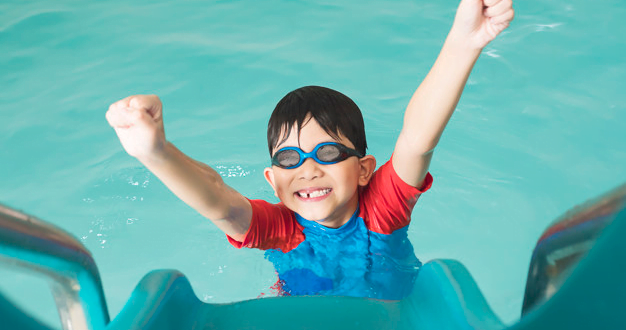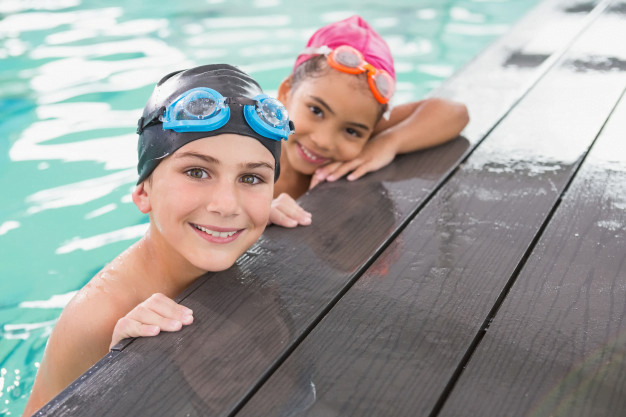
The competition is often a double-edged sword for small athletes. Competition Among Young Swimmers. Sometimes it is the motivation for success and sometimes it is the reason they stop swimming in their early teenage years.
Let's say we are a 10-year swimmer. We qualify for the first time to participate in competitions. We manage let's have a good one time but not to get a medal.
After the end of the season our coach meets with our parents. It lets them know that we are really good athletes and that we can move on to the next division. Because it feels so good to feel good about something, we accept without hesitation. The workouts get longer and more challenging each week and additional gym hours are added, outside the pool, twice and thrice a week. Although the challenges are many, we give the best we can and find a way to join a group of athletes of a similar competitive ability to ours.
Competition Among Young Swimmers
Our effort pays off and we start to consider ourselves one of the good guys in the group. Our teammates, coach and parents support the same. So comes a new proposal from the coach to take the next step and take our training even more seriously. Now we train six to seven days a week and the pace tends to get exhausting. We begin to dread the idea of the physical demands and time consumption that swimming now requires of us.
With the rest of the teammates in the pool we only talk about the games and the situation is probably getting more and more boring. Although training has come to be considered a chore we still go for two main reasons. The first is because our parents want it and the second is because we want to participate in competitions all the time. Everyone tells us we are so good and we can't wait to show it in the next matches. We keep doing what our coach asks us to do, but sometimes it doesn't seem to be enough to make satisfactory improvements. By the time you reach 14 you can take part in big races, however there comes a time when you start to wonder if it is worth it to continue swimming as it seems to require more and more commitment.
So what went wrong?
In this hypothetical timeline many are the factors that ultimately caused the investment in the sport to be questioned. Although competition can be an important motivator for an athlete, it could never replace a genuine personal interest in the sport itself. Sometimes it can even become that edge that will wear away the enjoyment of participating and succeeding in the games.
Where is the dilemma?
Parents often consider swimming as the most suitable sport for their children for a variety of reasons, such as the health benefits, low injury rate, and building good and social character. However, children decide which sport to play with completely different criteria, the most basic of which is the sport most of their friends play.
So getting a kid to the pool is the easy part, as long as there's a friend there or a parent's faint dream more of Olympic glory. But staying in the sport is something completely different. And more often than not, it's the parents who will lay the groundwork for this kind of investment. Parents will help the young swimmer become as good as they really want to be, clarify their motivation and reach their goal. Parents will show young swimmers that there needs to be a reason for swimming independent of outside influences.

Balance through the prism of competitiveness
Competition sometimes works like a double-edged sword. Although success increases self-confidence, motivation and team spirit in young athletes, on the other hand seeing themselves always compared to someone else can be destructive, especially since they cannot have any control over others. . Therefore, in order to find a balance, there is no one-size-fits-all solution. Each athlete, through his character, is the one who will find a way to balance and be permanently in sports either for the excitement that competition gives him or because he can create opportunities for personal pleasure even in daily training. Another may benefit by focusing on the process of the match, his strategy and improving his technique.
However, swimming is not for every child the platform on which to develop all his talents. And parents should stand by him and understand that lack of competitiveness on the part of their child is not to blame. The ground was simply not suitable for a long-term investment in this area.
Saltamanikas Nikolas
TEFAA graduate swimming specialty
Class A swimming coach

No Comments